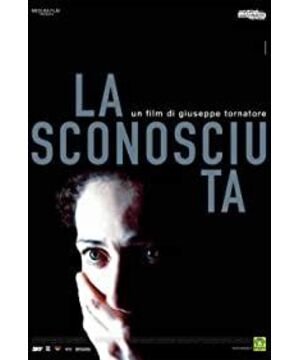He is a hallmark figure who can be as famous as Pasolini, Roberto Benigni, Antonioni and other Italian directors who are famous in the history of photography.
His works have nourished generations of world movie fans, and have an unshakable position in Chinese psychology. His works have a soul-piercing power to speak out,
"Paradise Cinema", "Star Scout", "Sea Pianist" ", "The Beautiful Legend of Sicily", "Best Bid"...
Giuseppe Tonadore is good at finding precious sweetness in extreme pain, and finding eternity in turbulent life. In his plain stories, there are philosophical speculations that allow us to see the true colors of life.
Giuseppe Tonadore was both a devil and an angel.
The darkness of human nature and the watch over the light, greed and sacrifice, these black and white in human civilization, in his eloquent story, are polished and plasticized, and what is left in the end is always the warm side of human nature, which is despair hope in.
So, Giuseppe Tonadore always moves us.
The film "The Hidden" spends almost all of its time intimidating the audience, creating discomfort and causing vertigo.
The film adopts a classic cross-narrative, one points to the present and the future, and then uses the flashback narrative to pull the audience back to the past, uses the past to drive the present, and at the same time lays foreshadowing to provide rationality for the character's behavior.
What is even more frightening is that Giuseppe Tonadore deliberately edited the flashback narrative to be very fragmented. Flashback narratives are often extremely short-lived, and suddenly inserted into the present narrative state by various means of montage. Memories.
All of these memories are painful, horrific, and unbearable for the audience and the characters.
Giuseppe Tonadore has a deep scheming to hide the suspenseful answer to the end. Even if the audience can find clues and reasoning evidence through the recollection narrative paragraphs, the entire complete story is obscured by many clouds of doubt and must reach the final climax. Only then will you know the answer and get the final core puzzle piece of the story.
The film starts off with an incomparably sweet beginning.
A number of beautiful women, wearing provocative clothes, are available for selection.
There is a trade behind the walls, women are their commodities, and men watch their playthings through hidden cat eyes.
This bizarre, bland beginning suddenly tumbles into more terrifying flashbacks, where women are whipped, abused, and used as a vehicle for vent.
Violent graphics, terrifying soundtrack, the film announces its dark and mysterious tone from the very beginning.
This suspicious opening film immediately grabbed the audience's attention, and the initiative was mobilized. The seductive mystery began to smell of rosemary, attracting you, but not telling you her true face .
With a jump cut, our heroine Ilya Yelishko appeared on the train.
Like the audience, she wakes up from the nightmare depicted in the opening sequence.
This is Giuseppe Tonadore's way of watching movies to disintegrate the audience's psychological defense line, using horror to attract attention, let unease occupy the heart, and plant the seeds of sympathy at the fastest speed, so that the audience is the same as the character, so that you and the character are the same. The protagonist develops empathy.
The story opens a narrative gap when the heroine Ilya Yelishko gets off the bus and arrives in Italy. As a result, the plot continues to increase one question after another.
Why is Elijah here?
What kind of past does Elijah have?
Who is Elijah?
Elijah's goals and objectives are obvious. She has an inexplicable passion for the Andezil family.
She rented the shack across from them.
He was courteous to the janitor, tried his best to please, and even offered half of his salary to get a job with the Andezils.
When she knew that the Andrzier family would not easily replace the old maid Gina, she was forced to sell her conscience and tripped on the stairwell Gina, who had long been a friend, made her fall into a vegetative state.
Finally, through various disguises and means, Ilia entered Andezil's house.
Elena is the hostess of the family, a shrewd jewelry maker who takes care of her daughter and has a strained relationship with her husband.
As the plot develops, we see more clearly Eliya's goal, the little girl at home.
The duo's signature brown curls seem to suggest something.
The film uses a cross-narrative to present two different Ilias, one is the flamboyant high-class prostitute of the past, with flamboyant blond hair and a costume of desire.
One is Ilia, who is deeply worried now, trying to please others and showing maternal care for the little girl that transcends her identity.
The past was always cruel and bloody. As a surrogate tool and a high-end doll, she was manipulated, her fate was turbulent, and she was out of her own control.
Now it is also difficult, lonely, tired, and traveled across the ocean, just to find the last relative, her daughter, the last blood-related soul sustenance after her surrogacy more than ten times.
Giuseppe Tonadore never forgets to add a more horrific past to an already bleak present, triggering a double resonance of emotions.
In order to find out Elena's food taste, Elia does not hesitate to eat the food in the garbage bag to obtain useful information.
In this shocking scene, the director joins in the memoir narrative of the same junkyard.
It's just that the past is even more sensational. Ilia was looking for something in the garbage piles all over the mountains and plains. She had a big belly, and her heart was already broken, and she looked like a soulless soul.
She took the shovel and dug around, slammed it, hit something, and the mystery was revealed.
What she looked for, and shoveled, was the cold, rotting corpse of her lover.
Most of the story scenes of "The Hidden" take this as the emotional tone, and the plot conflicts.
Elijah's behavior is always full of questions, is the little girl she takes care of and is her biological daughter?
In any case, her great motherly love sparks changes in those around her, inspiring acceptance and empathy from the audience.
The incompetent mother, inspired by intense jealousy, directly warned Elijah to leave her home and stay away from her adopted daughter.
The greedy housekeeper, after hearing her lullaby full of maternal care, took the initiative to take care of her, provide shelter, and even fall in love with this mysterious and dangerous woman beyond pure desire.
And the girl's father even admitted the identity of the girl's "mother" and offered help everywhere, creating opportunities for Ilia to be alone with the girl.
It can be said that the natural beauty brought only disaster to Ilia, and this maternal love gave her a new life.
But Giuseppe Tonadore does not give hope and goodness lightly.
In the end, the perpetrator, the bad guy, died. Being good also loses freedom.
Only in the last minute of the film, we saw the long-suppressed flower of hope.
Elijah grew old and came out of prison lonely. A girl arrived a few minutes late, the other turned around, and the two looked at each other. She knew it was her, and she knew she would not see it wrong.
The two smiled at each other and hugged, and the film ended quietly.
Hope and beauty are short-lived, difficult, and precious.
In this film, Donatore extended his tentacles to many social issues, smuggling, surrogacy, violence, and children's issues...
Like a sharp sword, the thick curtain was cut open, revealing a The real world is devastated.
Although it is cold enough, it also hides warmth.
The hot tears left by the audience at the last second are the seed of hope planted at the beginning of the film, and the causal ending after taking root and sprouting in the process of the whole film.
View more about The Unknown Woman reviews











